︎︎
Research
Artistic research – “In Search of Ubuntu – Legacies of Imperial projects , re-Remembering & re-Thinking “Empire” in relation to the West and the Rest” – 2021 – 2040
“In Search of Ubuntu” – a search for what makes us human and what connects us, is an investigative research based project, approached through the artistic lens, that retraces the causes of our current paradigm from the perspective of our interconnected history, with its inception anchored in the Dutch Golden Age.

I began my artistic research, with the project In Search of Ubuntu, Dutch Golden Age as my international response to the theme; Iepen Mienskip, “Open Community” of the 2018 European Cultural Capital Project in Leeuwarden, whose aim was to solve the controversial issues facing the Western World, among them, Migration, Inequality, Racism, and Climate Challenges. When this project ended, I realised that I had barely scratched the surface. It is with this reason that in 2021, I started working on an in-depth artistic research project entitled: In Search of Ubuntu, Legacies of Imperial projects, re-Remembering and re-Thinking Empire in relation to the West and the Rest.
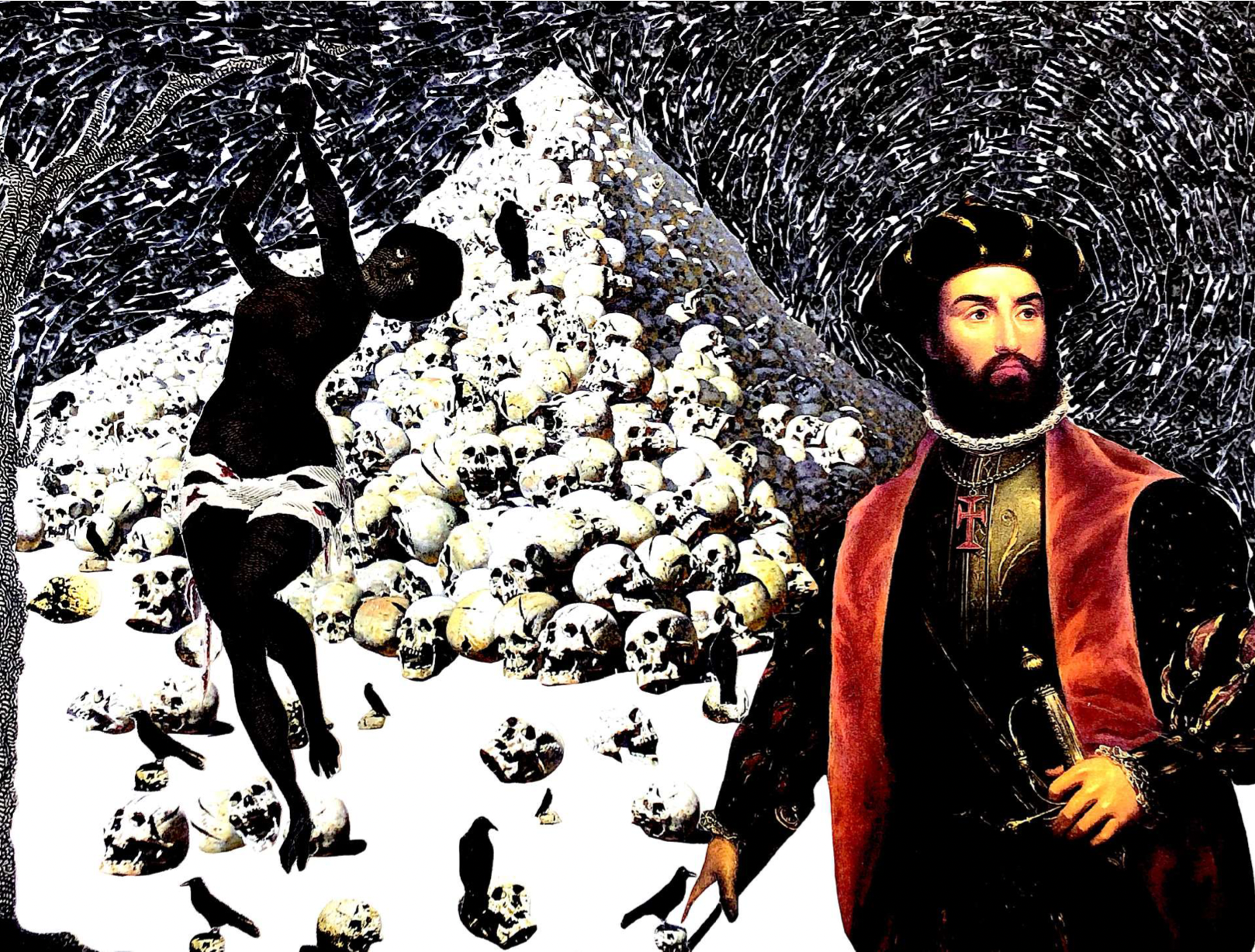
The focus of this in-depth artistic research is on Western colonialism, a political-economic phenomenon whereby various European nations explored, conquered, settled, and exploited large areas of the world. The age of modern colonialism began about 1500, following the European discoveries of a sea route around Africa’s southern coast (1488) and of America (1492). While this in-depth artistic research is anchored in the Dutch Empire, its core is to retrace the foundations of this history, to critically question how it still impacts our modern world and to connect the dots of Colonial Conquests and European empires through trade.
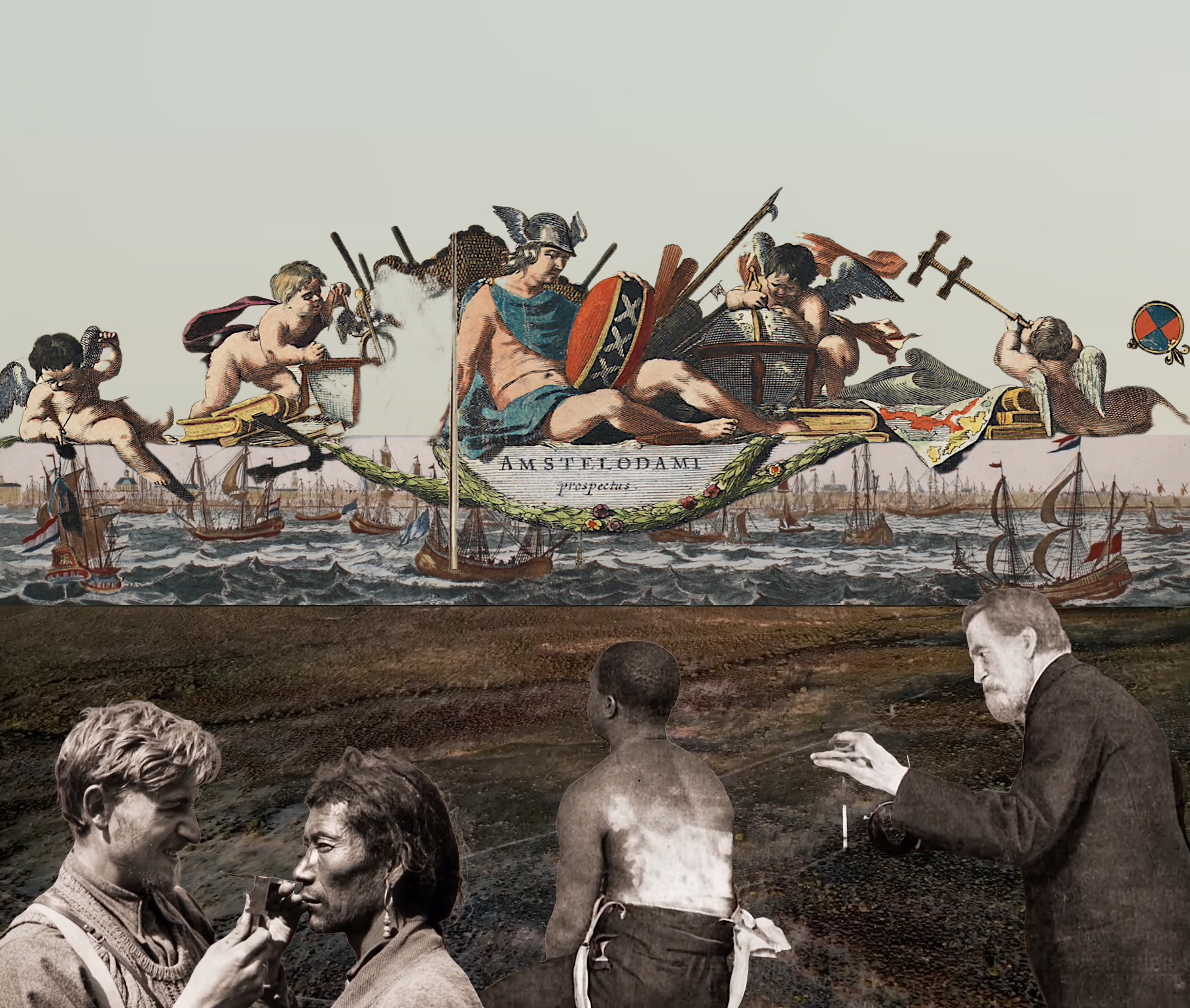
It is a Search for Ubuntu, "what makes us human – and what connects us." I chose the Dutch Golden Age as a point of departure because understanding the current state of our world and finding solutions to the climate crisis, poverty, inequality, racism and dismantling of the violent imperial capitalist structures, requires understanding how we got here in the first place. This important period of Dutch history, also connected to 17th century American Colonial history, nearly 400 years of Indonesian Colonial history, is vital in understanding the aftermath of the global power struggle between England and the Dutch Republic.
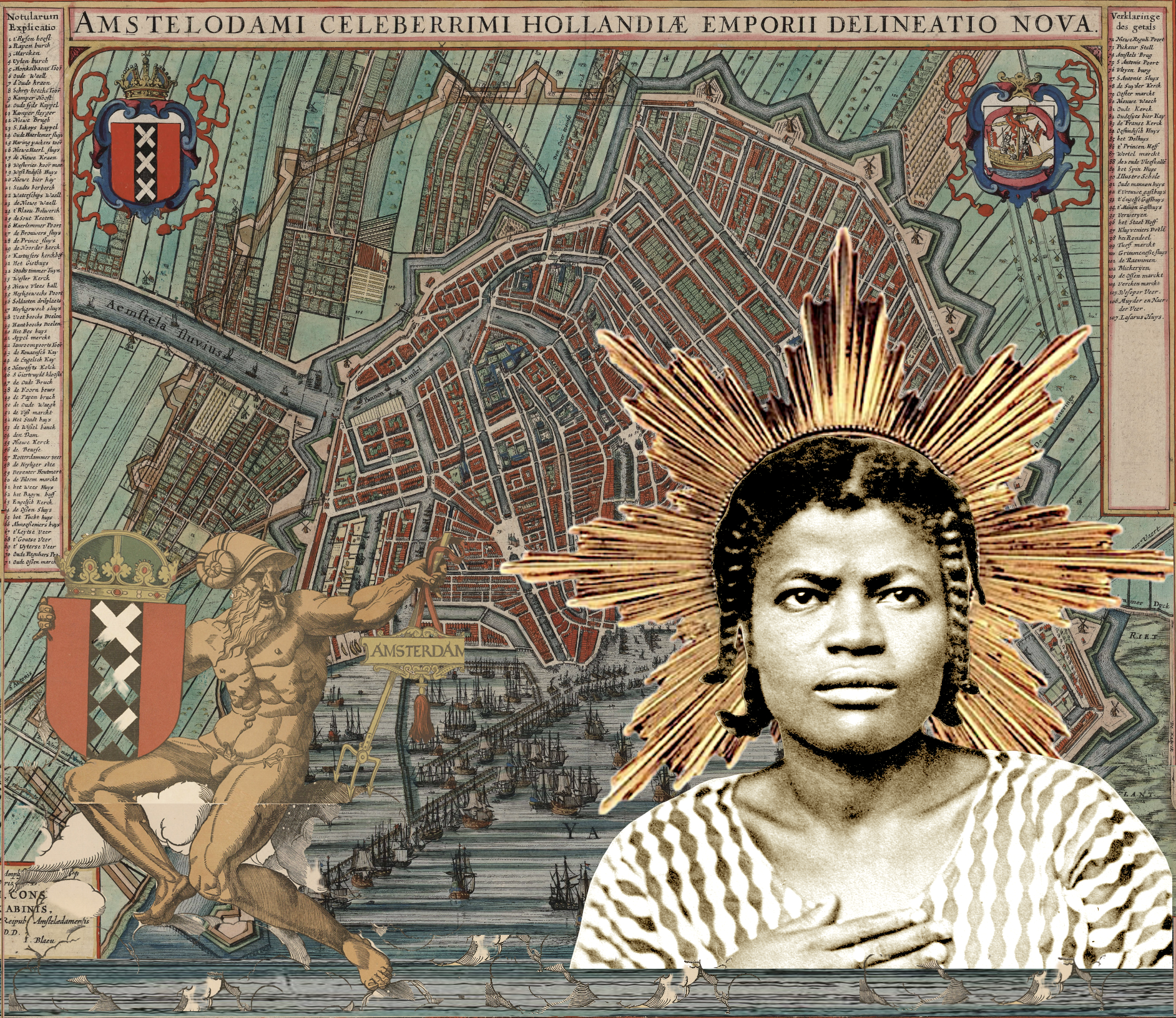
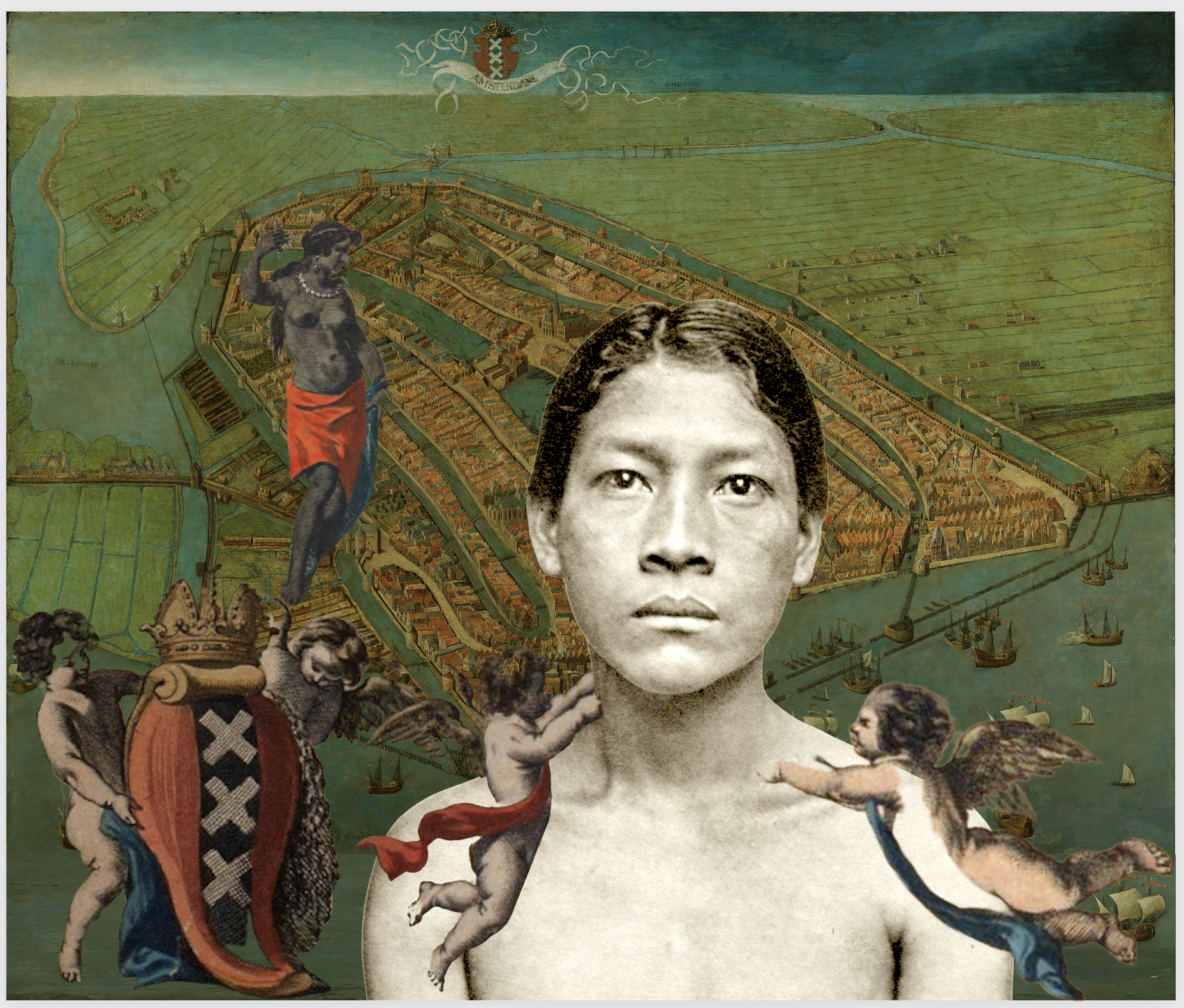
Research and Visual Mapping Projects and Chapters include:
The European Museum of Colonialism Chapters
- The Dutch Museum of Colonialism
- The British Museum of Colonialism
- The French Museum of Colonialism
- The Portuguese Museum of Colonialism
- The Spanish Museum of Colonialism
- The Belgian Museum of Colonialism
- The Swedish Museum of Colonialism
- The Danish Museum of Colonialism
- The Swiss Museum of Colonial complicity
- The Scotish Museum of Colonialism
- Founding fathers of Trans-Atlantic Slave Trade
- Inter caetera, Cartography and Papal bulls a
- Colonial Complicity, Luxembourgers and the Belgian Congo
- Westernisation
- European Museum of Racism
- East India and West Companies
- Historical tiles
- Weapon of Choice
The Visual Maps and Chapters per country and subject are an introduction into bodies of work presented in the form of a series.

These works critically reflect on each country’s Colonial history and its ongoing living legacies in present day Colonialism and Capitalism.

It is a Search for Ubuntu, "what makes us human – and what connects us."
“Because understanding the current state of our world and finding solutions to the climate crisis, poverty, inequality, racism and dismantling of the violent imperial capitalist structures, requires understanding how we got here in the first place.”
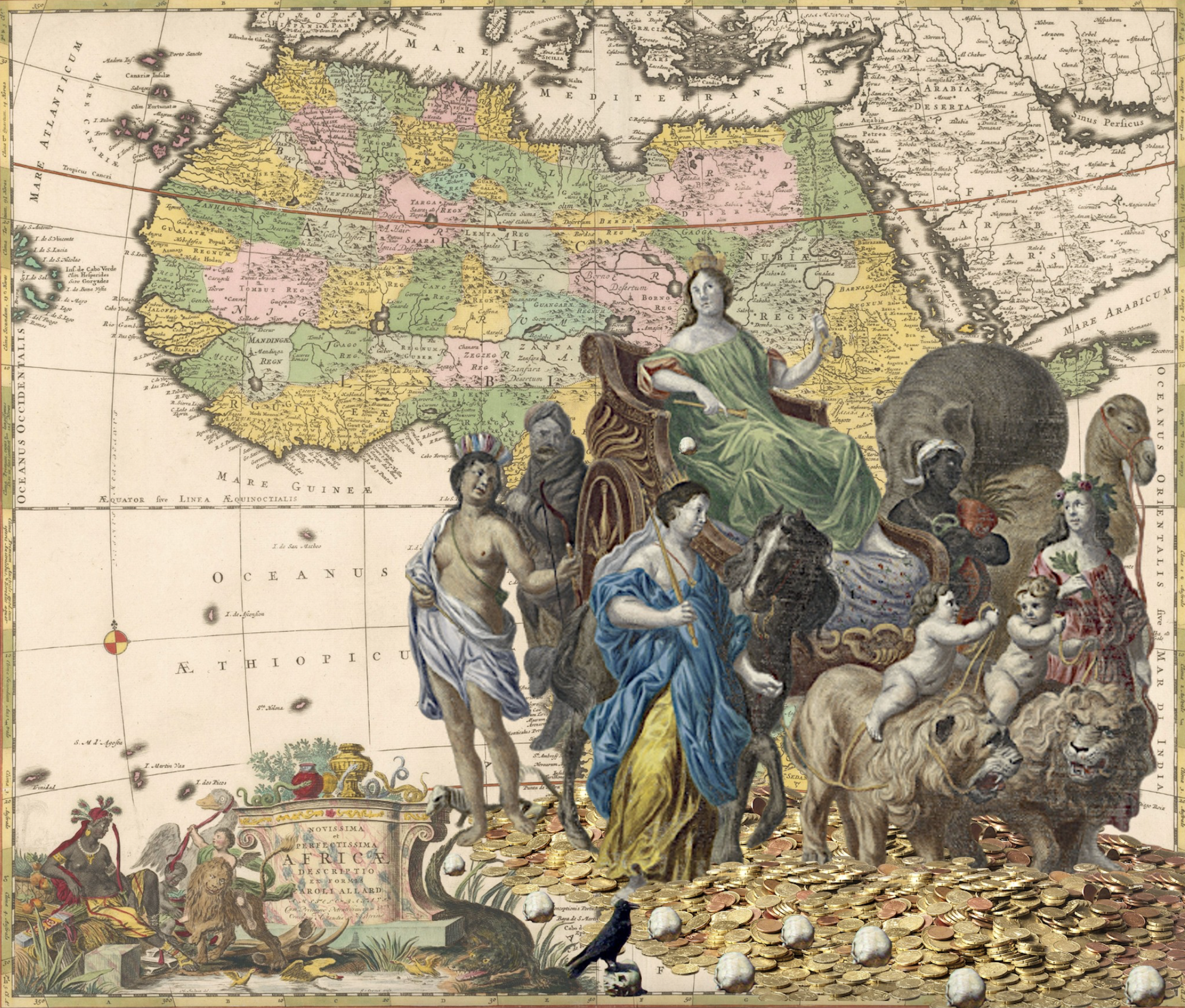
Next